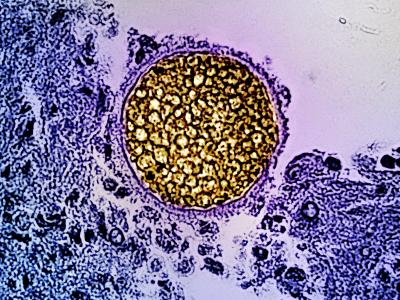Saudi Arabia identifies 2 new cases of MERS, 1 death
The Saudi Arabian Ministry of Health (MOH) reported two new cases of MERS-CoV infection yesterday and today and the death of a previously reported patient.
A 49-year-old Saudi man from Unayzah is in critical condition after presenting with symptoms of MERS-CoV (Middle East respiratory syndrome coronavirus), the MOH reported yesterday. The man had indirect contact with camels, a known risk factor for MERS.
Today, the MOH said a 60-year-old Saudi man from Al Majmaah was also in critical condition. The patient had direct contact with camels. The agency also confirmed today that a 77-year-old man in Riyadh who was previously reported died from MERS-CoV. He was not a healthcare worker and had preexisting disease.
Saudi Arabia's MERS-CoV case count since 2012 has now reached 1,738, including 703 deaths. Seven patients are still being treated, according to the MOH.
Oct 31 MOH update
Nov 1 MOH update
Flu continues to decline in Southern Hemisphere
The World Health Organization (WHO) reported continued declining flu activity levels in the Southern Hemisphere in its latest global flu update yesterday.
Flu levels remain low in the Northern Hemisphere, though North America and Europe have reported flu activity in the past few weeks.
Only Western and Central Asia reported increased activity of influenza-like illness and severe acute respiratory infection. Oman, Kazakhstan, Tajikistan, and Uzbekistan all reported increased activity.
Influenza A remains the dominant strain across the globe. Of all typed samples collected from Oct 2 to Oct 15, 78% were influenza A and 22% were influenza B. Of the subtyped influenza A viruses, 79.4% were H3N2 and 20.6% were H1N1.
Oct 31 WHO update
Study: Half of Zika pediatric patients report only 2 of 4 main symptoms
A study today in Pediatrics analyzed data on all known (33) Zika infections in children in Miami-Dade County and found that almost half (16) of the children reported only two of the four main symptoms of infection.
The study included children diagnosed as having Zika virus between Oct 15, 2015, and Mar 29 of this year. Twenty-seven cases (82.3%) were travel-associated. The median age of the patients was 11 years. Seventeen case-patients (51.5%) were boys, and 23 (69.9%) were Hispanic.
According to the study, all 31 symptomatic children reported having rash, 25 (80.6%) reported fever, 9 (29.0%) reported conjunctivitis, and 7 (22.6%) reported joint pain. Sixteen cases (48.5%) reported two of four main symptoms, and 8 (24.2%) reported three. Among the 31 confirmed case-patients, 25 (80.6%) reported having both fever and rash.
The authors concluded by emphasizing the need to test children for Zika if they have household members who are infected with the virus, especially if they exhibit fever or rash.
In another Zika study published in the Proceedings of the National Academy of Sciences, researchers described mouse brain slice culture experiments that suggested that all Zika lineages have the potential to disrupt brain development.
In addition, Zika virus was able to invade brain cells at all stages of embryonic development.
Nov 1 Pediatrics study
Oct 31 Proc Natl Acad Sci study









